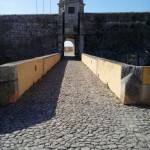
The double-minded revolutionary
In 1884, a Russian woman by the name of Liudmila Volkenshtein was found guilty of anti-tsarist “terrorism” by a military court in St Petersburg. Her crimes were bound up with her membership in an underground group called “The People’s Will” (Narodnaia Volia), an organization that in 1881 had carried out the assassination of Tsar Alexander II. Volkenshtein herself […]

The Great Escape
Peter Kropotkin is remembered today as a brilliant Russian social revolutionary, geographer, scientist, and anarchist writer.Less well known, however, is the name of the friend and co-conspirator who significantly prolonged Kropotkin’s life by engineering his remarkable prison break in 1876. Dr. Orest Edward Veimar, a St. Petersburg surgeon, was the chief architect of Kropotkin’s […]

Empire’s Exile: The Story of Lý Liễu
by Lorraine M. Paterson In 1923 in the British colony of Trinidad, a young English woman returned from visiting her family in a suburb of the capital, Port of Spain, to find that her Chinese husband of six years, Lý Liễu, had packed up his possessions and left her and their two small children. […]

The Carceral Archipelago Conference, Leicester 13-16 September 2015
The Carceral Archipelago conference, held in Leicester from 13 to 16 September 2015, felt just like reading over thirty outstanding monographs in two-and-a-half days, getting to know their authors personally, and having the chance to reflect collectively about their mutual entanglements. It was an intense marathon through the burgeoning field of the global history of […]

Where Empires Meet
In a previous blog, I wrote on the theme of the politics of comparison, of the connected history of circulation and mobility that underpins the CArchipelago project team’s approach to the historiography, theory and archive of penal colonies. Research associate Christian De Vito has since expanded the discussion, discussing the basis of various approaches […]

Peniche Fado
During a recent trip to Portugal I took the chance to visit the fortress of Peniche, situated on the rocky coast in the homonymous village, approximately one hundred kilometres north of Lisbon. The imposing fortress was built between the sixteenth and the early seventeenth centuries as part of a system of coastal defense against foreign […]

Recent Comments